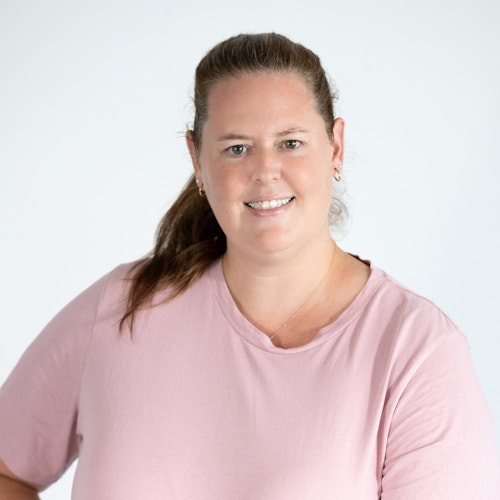

 Words by Ashleigh Howarth
Words by Ashleigh Howarth
A Mater clinic dedicated to pregnant women with small babies is helping to prevent stillbirth and other newborn complications.
The Mater Mothers’ Hospital Fetal Growth Clinic, embedded within the Mater Centre for Maternal Fetal Medicine, is the first of its kind in Queensland and has supported more than 360 women in the past year with suspected small babies (estimated fetal weight below the 10th percentile).
Mater Mothers' Hospital Senior Specialist in Maternal Fetal Medicine and Obstetrics, Professor Sailesh Kumar, said small babies were at an increased risk of complications during pregnancy and after birth including stillbirth, neonatal death and brain injury.
“There is no other clinic like this in Queensland - it is a specialised clinic for women whose pregnancies have been identified as having fetal growth or placental issues,” he said.
Almost 20 per cent of pregnancies in Australia are complicated with some form of growth abnormality.
Natasha Van Nunen from Burpengary East was one of the first women to receive care at the Fetal Growth Clinic when it opened last year, having experienced fetal growth issues with her first pregnancy.
“Our first baby, Adriaan, was born in November 2021 at 25-weeks' gestation after his placenta abrupted, and he passed away at just four days of age,” Natasha said.
“During my second pregnancy, when I was told I had Fetal Growth Restriction (FGR) at 19-weeks' gestation, I was referred to the Fetal Growth Clinic at Mater.
“They monitored me closely and, as my pregnancy got further along, they were able to figure out the best time for me to give birth.”
With help from the doctors, Natasha and her husband Quinlan safely welcomed their daughter Amelia six months ago.
Saving lives
Dedicated research, funded by community donations to Mater Foundation, enabled the world-leading maternal fetal specialists at Mater to develop new ways of identifying and treating babies at risk.
Prof Kumar said data on hormones and complex molecules released from the placenta enabled specialists at the Fetal Growth Clinic to identify the likelihood of complications and to deliver treatments that improve baby outcomes.
“These issues can also be compounded if they are born too early. Through very detailed monitoring, we are able to advise obstetricians and midwives about the best time to deliver these babies and defer delivery until outcomes are better,” he said.
“Almost every woman referred to our clinic participates in various research studies and clinical trials. This is an important aspect of the clinic, as there is good evidence to show that clinical outcomes tend to be better in research active institutions.
“I hope that a similar model can be rolled out to other centres in Queensland.”
Related Stories
Top Stories

Molly helping shape the future
From advising politicians to discussing social impact initiatives with young people across the globe, St Eugene College Burpengary student Molly O’Hanlon is on a mission to make a lasting impact.


Popular Stories

Satellite hospitals hit six-figure landmark
New data shows Queensland’s satellite hospitals – including those at Caboolture, Bribie and Kallangur – have reached a major milestone.

Moreton Bay artists shine in 2024 Brisbane Portrait Prize
Four Moreton Bay artists are among the 64 finalists chosen from almost 600 entries in this year’s Brisbane Portrait Prize. See their works...

'Priority' given for Waraba plans
Waraba, formerly known as Caboolture West, will be the 36th Priority Development Area in Queensland, unlocking land for 30,000 new homes and an estimated 70,000 new residents.













